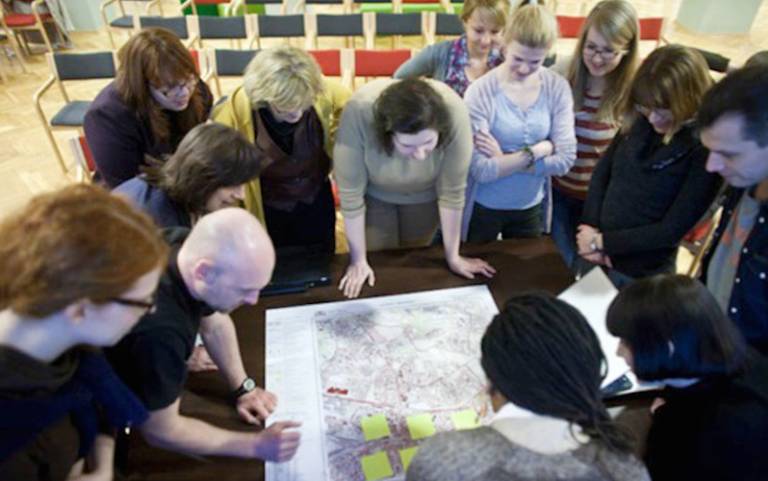Improving the quality of life for local communities
UCL has pioneered a radical new way of engaging communities to find greener, healthier and more sustainable ways of living – directly improving air quality and noise pollution for thousands of people.

UCL researchers have pioneered a radical new approach to engaging communities to find greener, healthier and more sustainable ways of living. Their work has led to a number of policy changes and actions by local authorities which have already directly improved the quality of living for thousands of local people.
Professor Muki Haklay (UCL Geography) is one of the co-founders of Mapping for Change, a UCL social enterprise spinout which was launched in 2008 to support sustainable communities.
It uses a suite of innovative mapping tools and engagement methodologies that can be used by communities, voluntary sector organisations, local authorities and developers across a range of sectors including school programmes, food growth, distribution, town planning and sustainable tourism.
Muki’s work, which engages communities through ‘citizen science’, has been used by a number of local authorities and organisations and has been central to the development of new policies and action to create more sustainable cities.
In 2018, Muki worked with Camden Council to develop the Camden Clean Air Partnership which is aiming to achieve World Health Organisation levels of air quality by 2030 – bringing together residents, businesses, schools, universities and other key organisations in the borough to pioneer radical new ways of improving Camden’s air together.
Residents on an estate in Deptford had suffered noise pollution from a local scrapyard, but with the help of Mapping for Change, residents used noise meters to take measurements throughout the day and night over two months. The Environment Agency revoked the scrapyard's licence and, following another study, the local authority (Lewisham) installed air quality monitoring devices in the area.
Muki is also co-director of the UCL Extreme Citizen Science (ExCiteS) group which is dedicated to allowing any community, regardless of their literacy, to use scientific methods and tools to collect, analyse, interpret and use information about their area and activities.
Links
- Professor Muki Haklay's academic profile
- Extreme Citizen Science (ExCiteS)
- UCL academics support Camden’s Citizen Assembly on Climate Change (UCL News)
- And breathe… UCL and Camden Council work together to clean up our air (UCL News)
- Mapping for Change
- Camden's Clean Air Action Plan
- UCL Innovation & Enterprise
Image
- Credit/Source: Mapping for Change
 Close
Close

